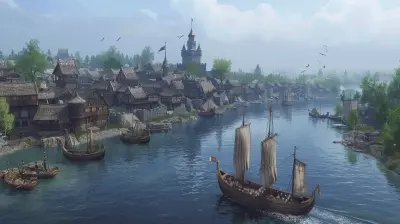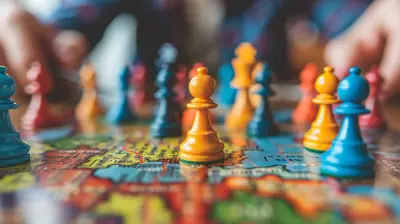The Unlikely Hero: Playing Non-Traditional Characters in Fantasy RPGs
15 August 2025
When you think about fantasy RPGs (role-playing games), what comes to mind first? Probably the gallant knight decked out in shining armor, the mysterious mage wielding powerful spells, or the sneaky rogue hiding in the shadows. These archetypes have become staples in the genre, and for good reason—they’re iconic, reliable, and, frankly, just plain cool. But have you ever wondered, what would it be like to step into the shoes (or hooves, or claws) of someone—or something—entirely different?
That’s where non-traditional characters come in. They’re the underdogs, the wild cards, the oddballs of the RPG world. And while it might be tempting to overlook them, I’d argue they offer some of the most rewarding and memorable experiences you can have in a fantasy game. Let’s dive into why playing non-traditional characters is not just a quirky choice but a downright brilliant one.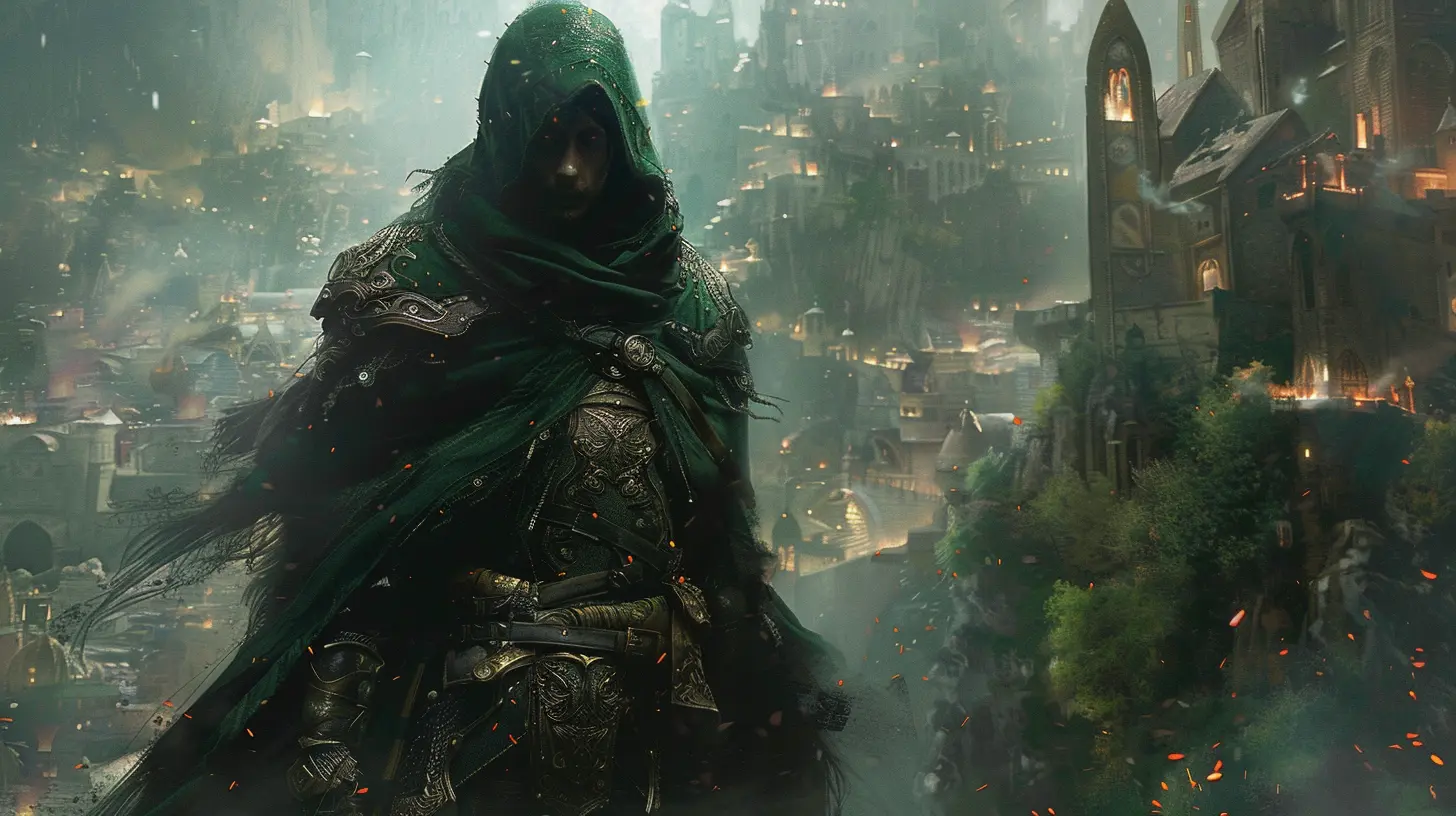
What Are Non-Traditional Characters?
Before we go any further, let’s clear up what I mean by "non-traditional characters." These are the characters that break away from the classic molds fantasy RPGs are known for. Instead of a sword-wielding human warrior, you might play as a pacifist goblin monk. Instead of a majestic elf ranger, you could opt for a clumsy, bookish orc who’s better at solving puzzles than swinging axes.Non-traditional doesn’t just stop at race or class—it can extend to personality, background, and motivations. These are characters who challenge the norms and make you rethink how you approach the game.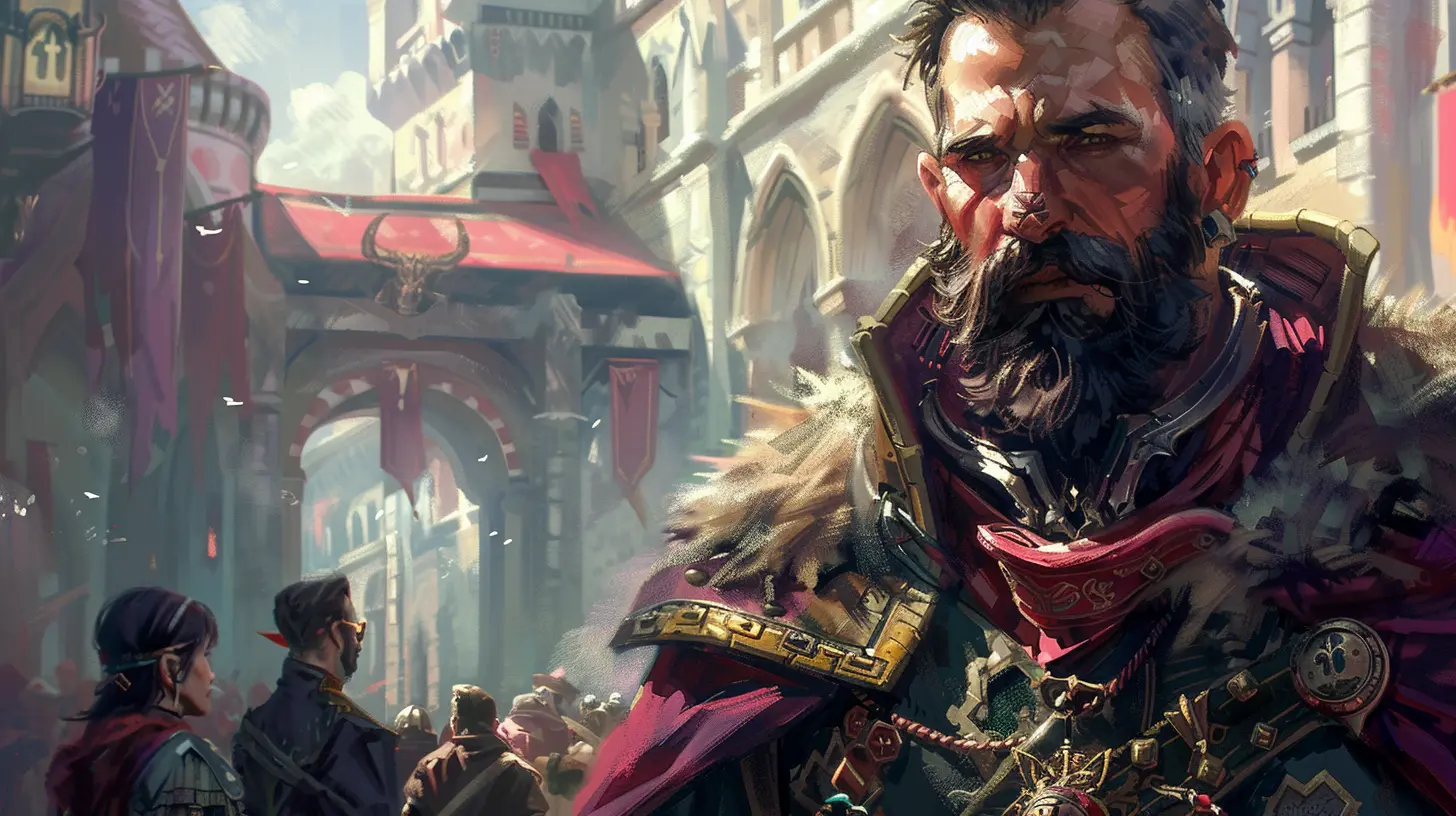
Why Play Non-Traditional Characters?
Okay, so you’re probably wondering: Why should I give up my trusty ranger or battle-hardened barbarian for something so… unconventional? Fair question. Here are a few reasons why stepping out of the box is worth it:1. Freshness That Breaks the Monotony
Let’s face it—fantasy RPGs can sometimes fall into patterns. How many times have you started out in a small village, saved a townsperson from bandits, and ended up on a quest to save the world? Now, there’s nothing wrong with these setups—they’re classics for a reason. But playing a non-traditional character brings a refreshing twist to those familiar tropes.Imagine approaching a "damsel in distress" scenario as a bumbling ogre with a heart of gold. Instead of charging into battle, you might fumble around, accidentally scare the bandits away, and win the damsel’s gratitude in the most unexpected way. Same quest, but a totally different vibe.
2. Deep Role-Playing Opportunities
RPGs are all about stepping into someone else’s shoes, right? Well, non-traditional characters give you a chance to really flex those role-playing muscles. They’re like the ultimate acting challenge.Playing a cowardly goblin scholar who’s afraid of combat but eager to unlock ancient mysteries forces you to think outside the box. Maybe you’ll negotiate your way out of fights or rely on gadgets and trickery to survive. The point is, these characters push you to creatively engage with the story and the world.
3. Unpredictable Storytelling
Game masters (GMs) and developers design RPGs with certain expectations in mind. They anticipate that players will choose traditional paths, like picking a knight to defeat an evil warlord. But toss in a character like a lazy pixie who’s more interested in napping than adventuring, and suddenly, the narrative takes wild turns no one saw coming.The beauty of non-traditional characters is their unpredictability. They add spice to the story—not just for you, but for everyone else involved. Your party members and the GM will have to adapt to your unconventional style, leading to some truly memorable moments.
4. Relatable Underdogs
Let’s be honest—for most of us, life isn’t about being the strongest, smartest, or most perfect person in the room. We all have flaws, quirks, and limitations. Non-traditional characters tap into that relatability. They’re not the flawless heroes, but the ones who succeed despite their disadvantages.When that bumbling kobold bard manages to charm a dragon into sparing the party, it feels like you just performed a miracle. And isn’t that what makes RPGs so magical?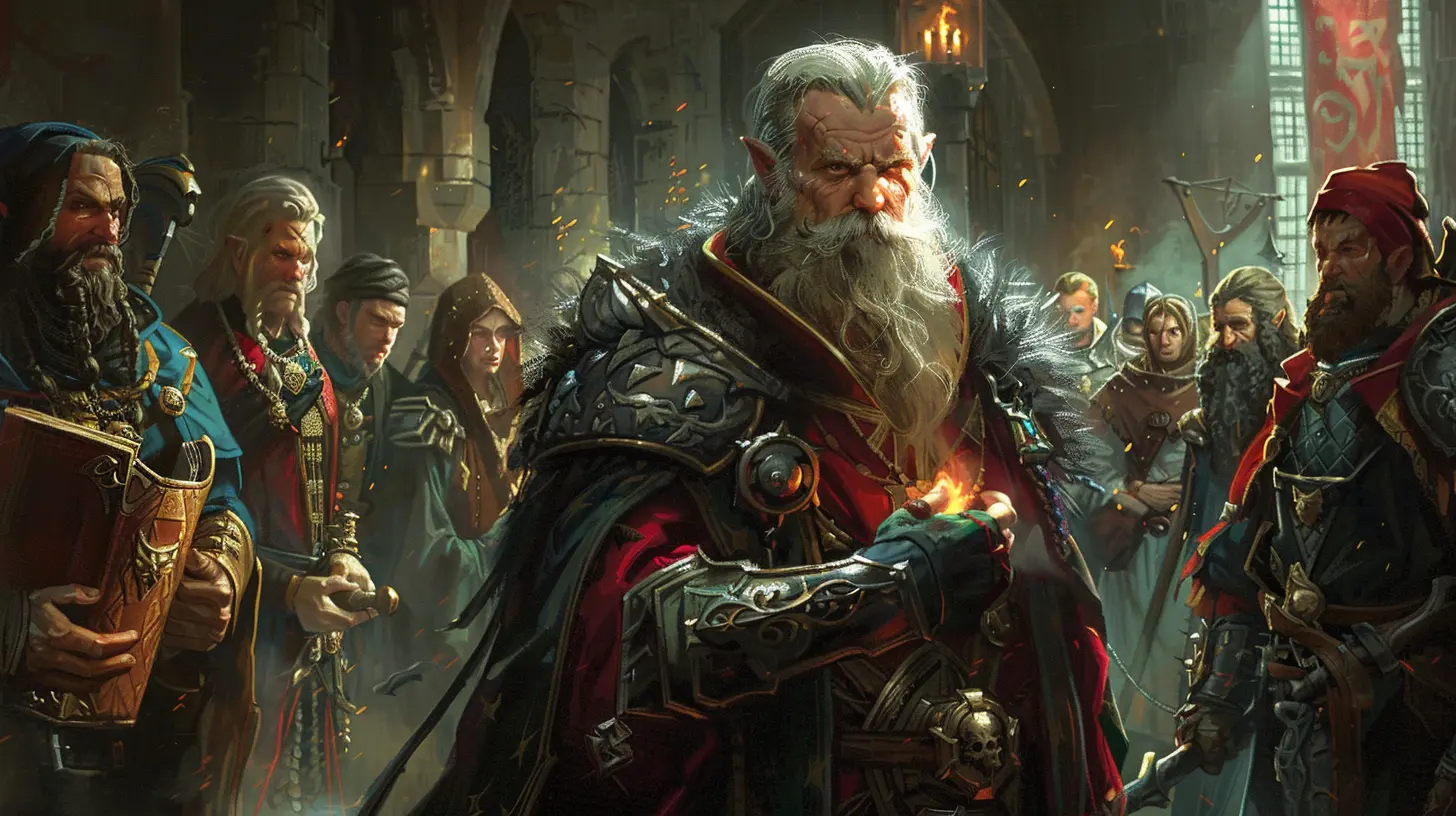
How to Create a Memorable Non-Traditional Character
Now that I (hopefully) have you curious about playing an unlikely hero, let’s talk about how to actually make one. Here are a few tips to get you started:1. Flip the Script
Start by identifying traditional fantasy tropes and then asking, "What’s the opposite of this?" For instance, instead of creating a noble elven sorcerer, why not make a mischievous goblin who accidentally stumbled into their magic powers? Think of it as a brainstorming game—how far can you deviate from the norm without veering into complete absurdity?2. Give Them a Unique Motivation
A character’s backstory and goals are what drive them, so put some thought into what makes your oddball hero tick. Maybe your troll cleric became a healer out of guilt for his past as a mercenary. Or your shy gnome rogue only became a thief out of necessity to pay off her family’s debt. Interesting motivations can endear your character to others and deepen the story.3. Lean Into the Flaws
Nobody’s perfect, especially not your non-traditional hero. Flaws are what make characters compelling, so don’t shy away from them. Your clumsy half-orc wizard might have trouble casting spells, but that only makes it more satisfying when they finally succeed. Embrace the imperfection—it’s what will make your character stand out.4. Collaborate with Your Party and GM
Non-traditional characters can sometimes throw a wrench into the usual flow of gameplay (in a good way, of course). Still, it’s a good idea to work with your fellow players and the GM to ensure your character fits into the story. You don’t want to derail the campaign, after all—you just want to add some extra flair to it.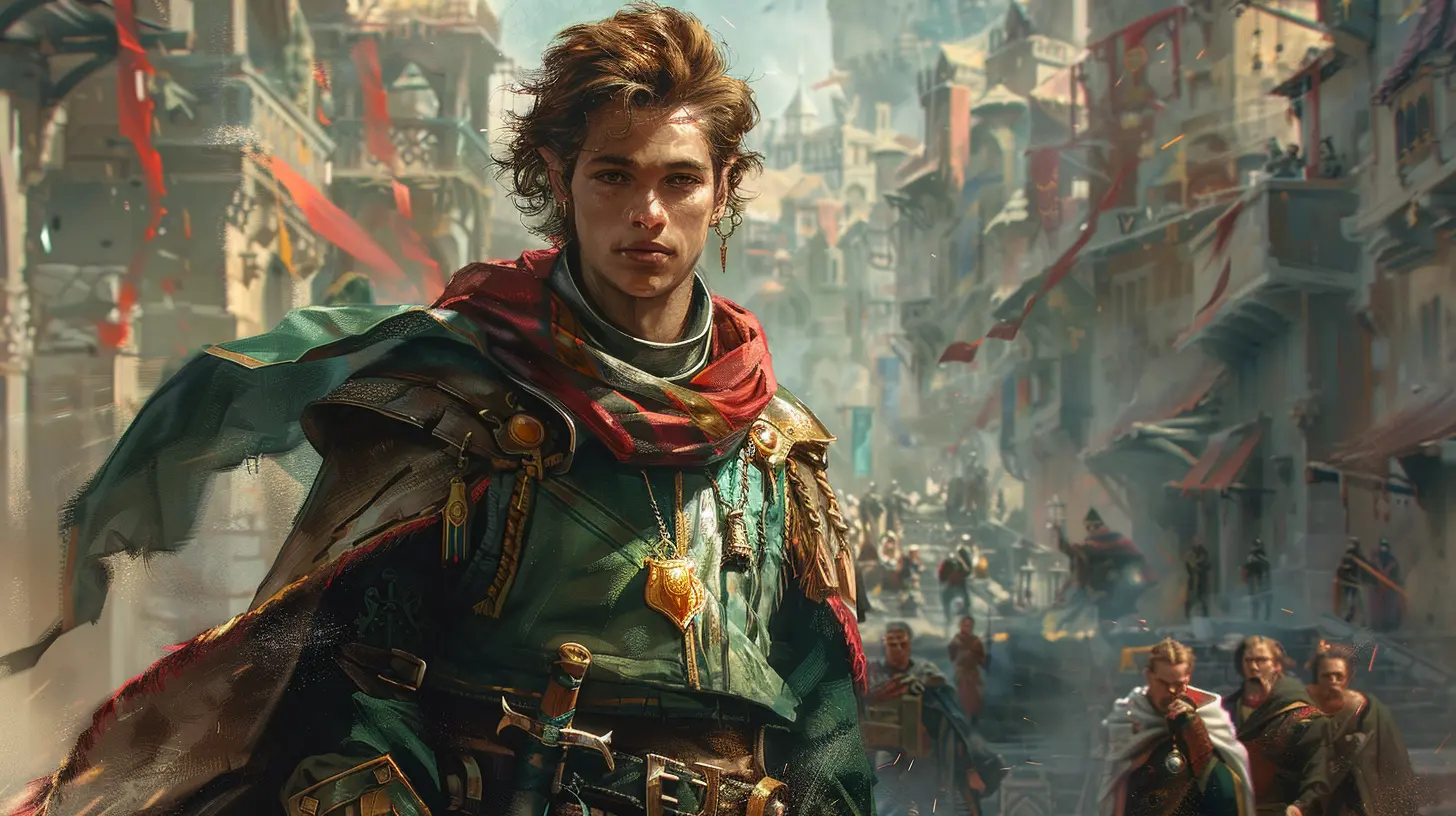
Examples of Non-Traditional Characters
Need some inspiration? Here are a few character concepts that deviate from the norm but still have plenty of charm:- A deaf dwarf bard who communicates through sign language and rhythmic drumming.
- A cowardly minotaur who works as a chef and only fights when the party’s in dire need.
- A morally conflicted vampire paladin sworn to protect the innocent.
- A sarcastic sentient mushroom with a knack for alchemy.
- A klutzy goblin mechanic who dreams of building the ultimate airship.
The possibilities are endless! All it takes is a little creativity and a willingness to take risks.
Embracing the Chaos
One thing to keep in mind when playing a non-traditional character is that things won’t always go smoothly. Traditional classes and archetypes exist because they’re optimized for certain playstyles and mechanics. Non-traditional characters, by their very nature, usually come with a steeper learning curve or challenges in combat. But that’s part of the fun!When you pick a non-traditional character, you’re signing up for a bit of chaos. It might mean failure, awkward moments, or plans going hilariously sideways—but those are the moments that make for the best stories later. And isn’t that what RPGs are all about?
Final Thoughts
So, whether you’re a seasoned player or new to the world of fantasy RPGs, I challenge you to give non-traditional characters a shot. Sure, playing a courageous knight or cunning rogue is great, but every once in a while, it’s worth stepping into the role of a bumbling sidekick who becomes the unexpected star.Non-traditional characters remind us that heroism doesn’t always look like we expect. Sometimes, it’s a clumsy goblin navigating a world full of skeptics or a troll with a soft spot for kittens. They’re the misfits, the outcasts, the underdogs—and, often, the most rewarding characters to play.
So, grab your dice, get creative, and let the unlikely hero inside you shine.
all images in this post were generated using AI tools
Category:
Fantasy RpgsAuthor:

Whitman Adams
Discussion
rate this article
2 comments
Mila Whitaker
What a wonderful exploration of non-traditional characters in fantasy RPGs! Embracing unlikely heroes not only enriches our narratives but also reflects the diverse experiences we all share. Thank you for encouraging players to think beyond stereotypes and celebrate the unique journeys we can embark on together.
December 18, 2025 at 6:05 PM

Whitman Adams
Thank you for your thoughtful comment! I'm glad you appreciate the exploration of non-traditional characters and the richness they bring to our stories.
Mindy McLanahan
Embracing unconventional characters enriches gameplay and storytelling in fantasy RPGs. Love it!
August 20, 2025 at 2:35 AM

Whitman Adams
Thank you! I'm glad you appreciate the depth that unconventional characters bring to fantasy RPGs. They truly enhance both gameplay and storytelling!

